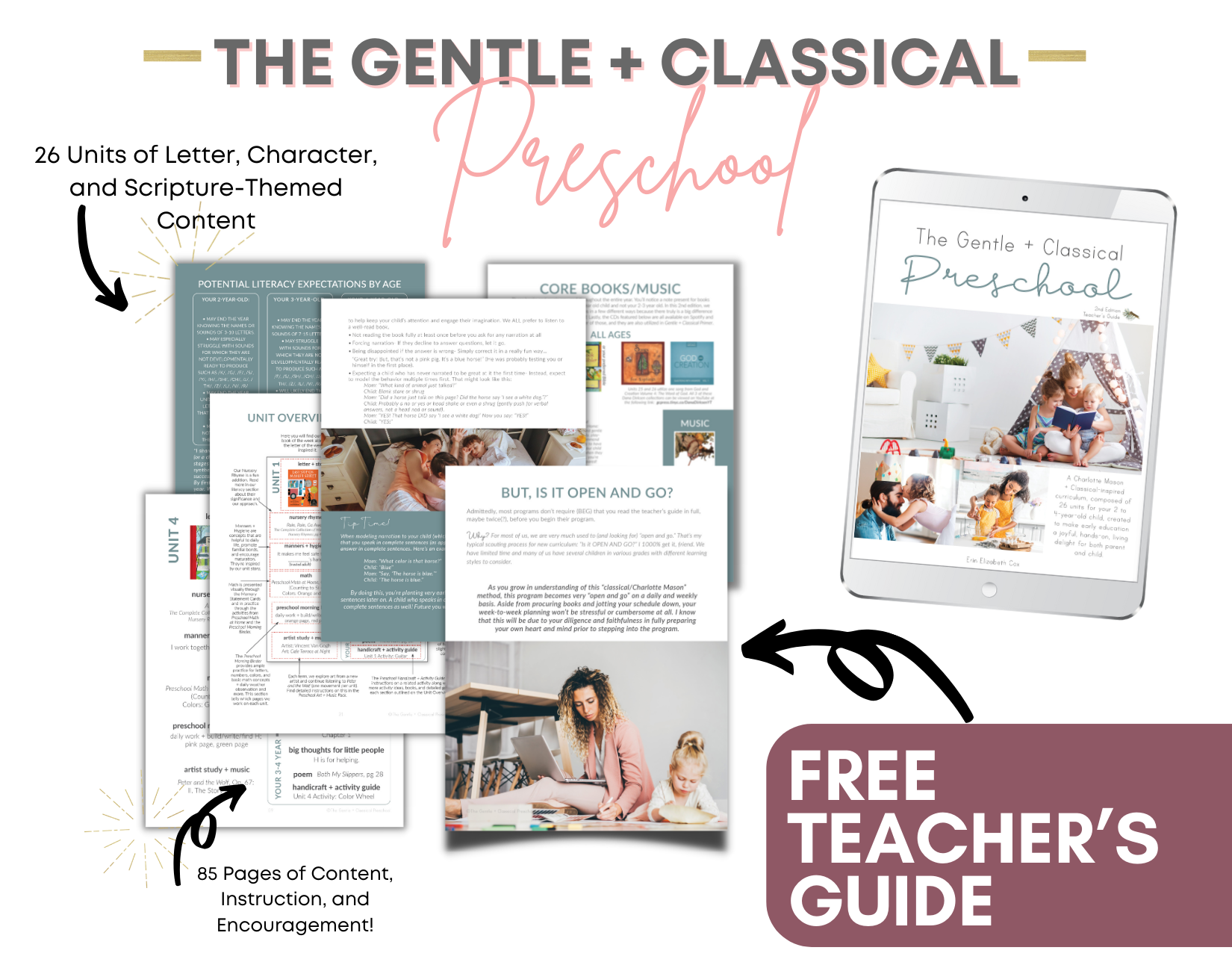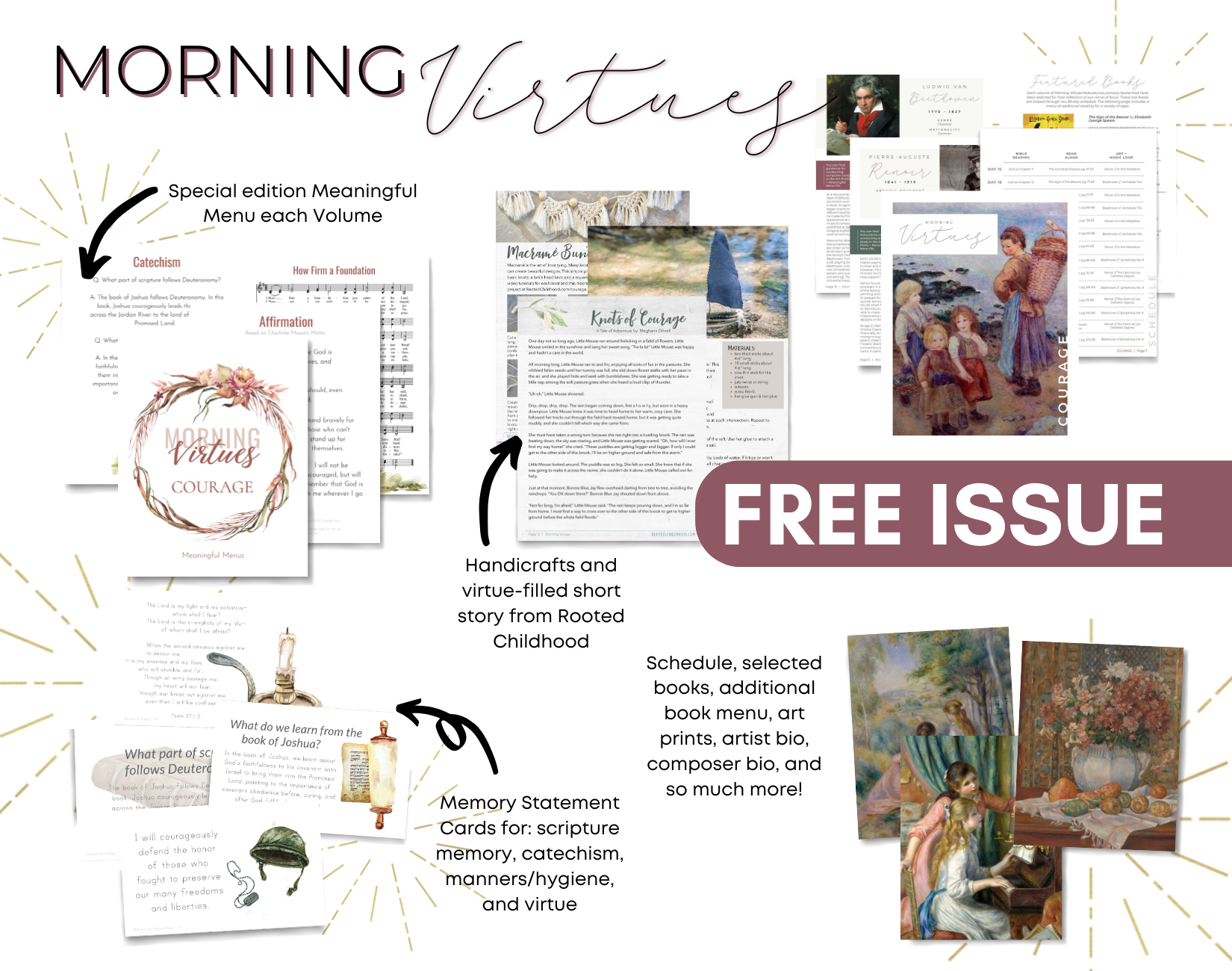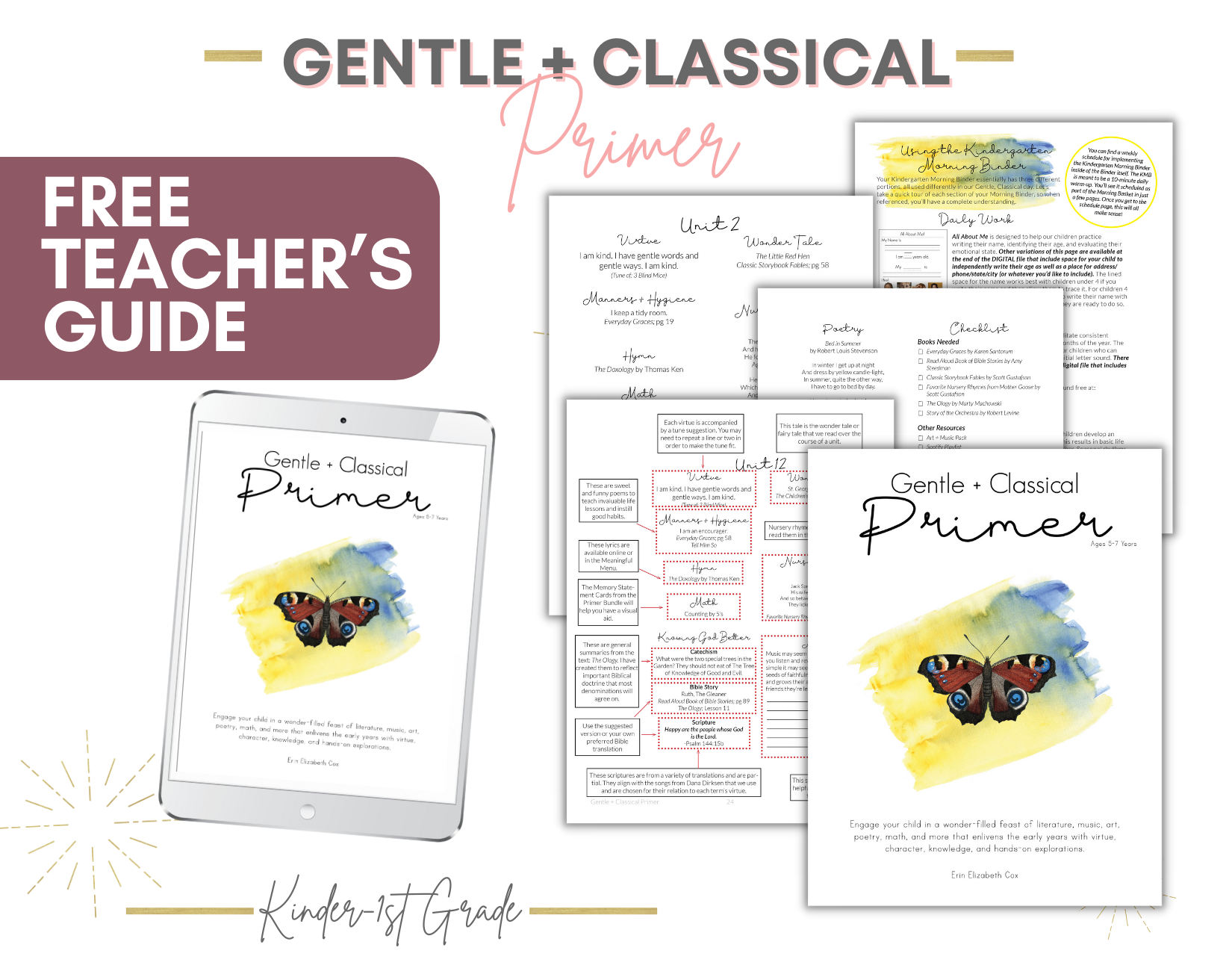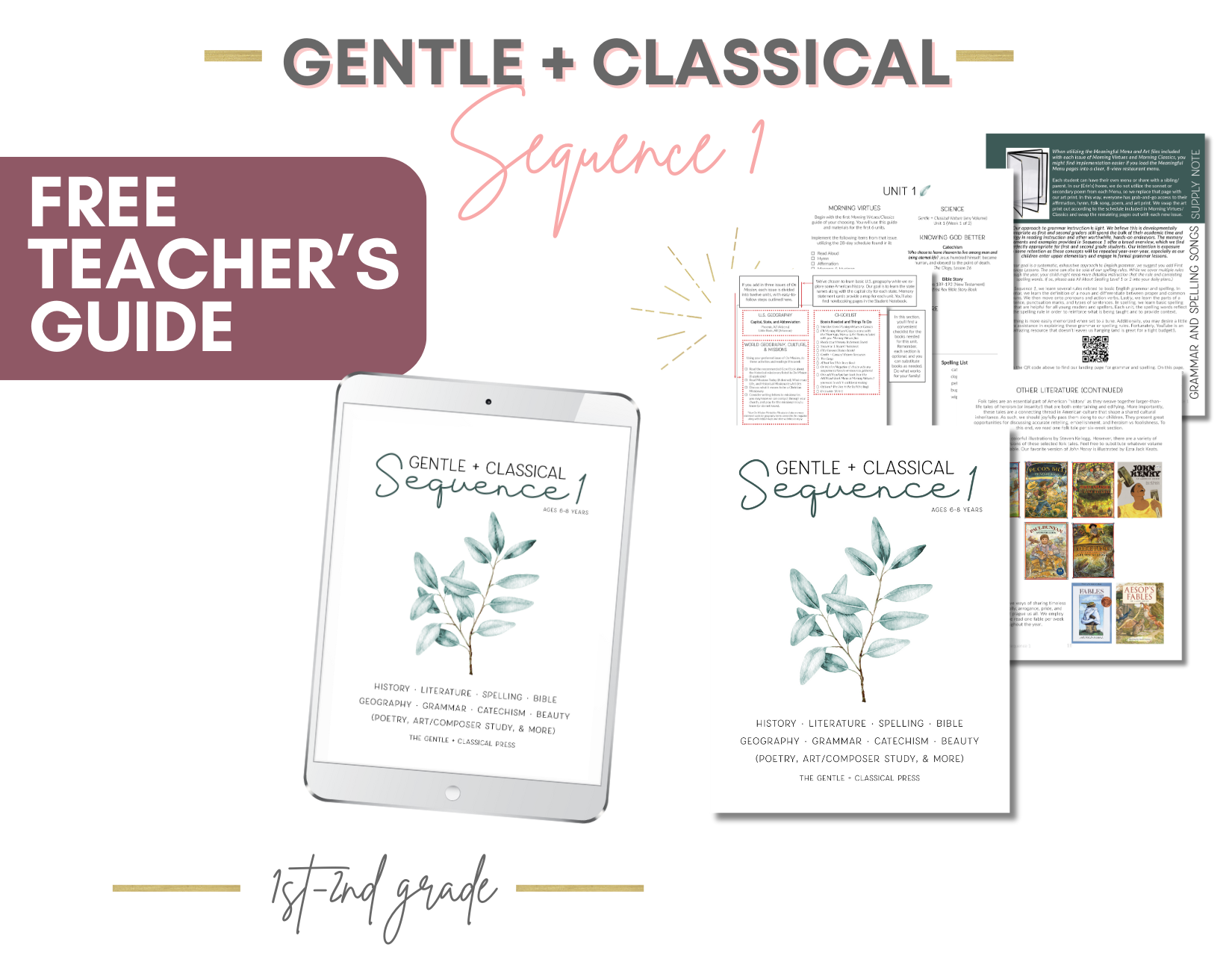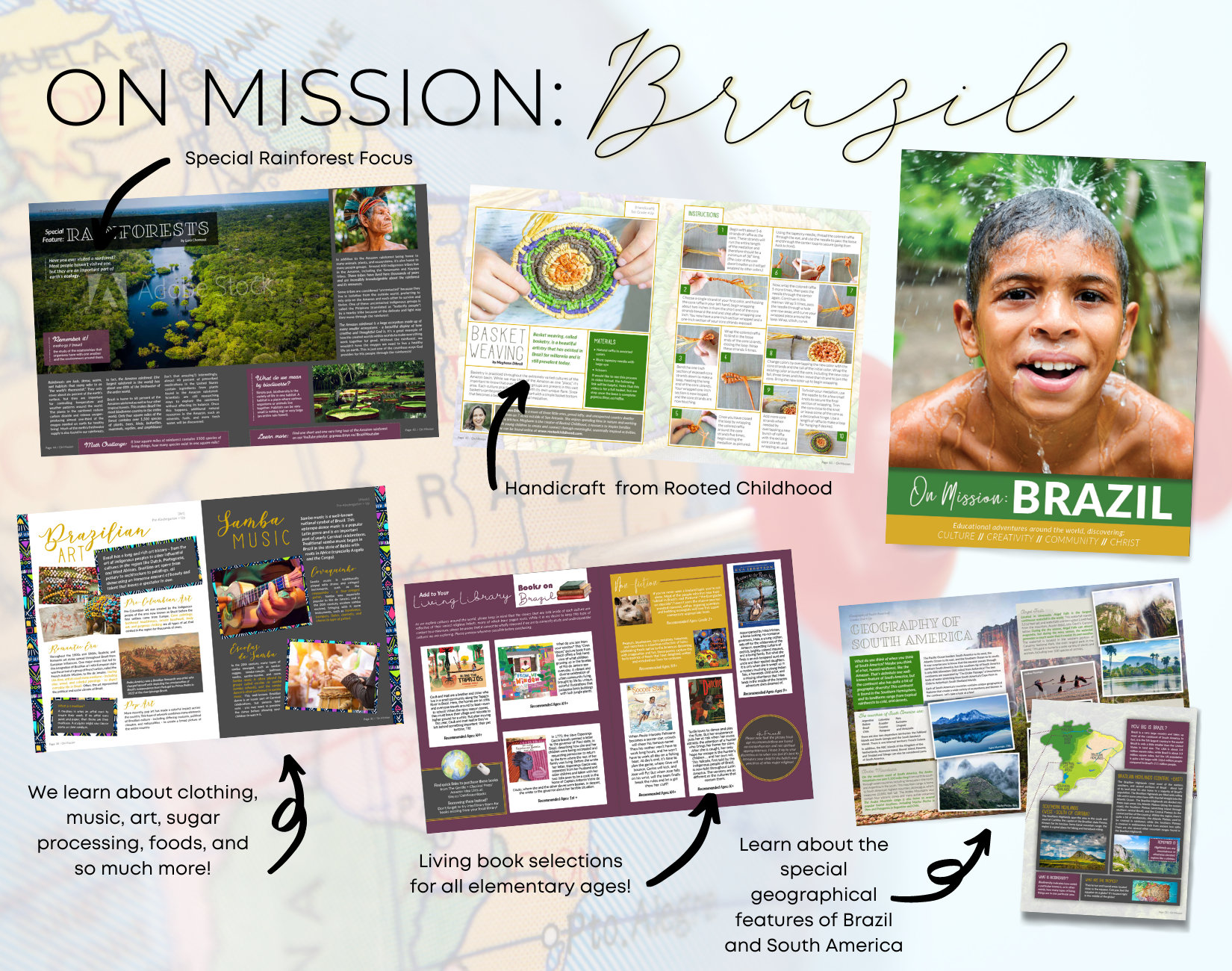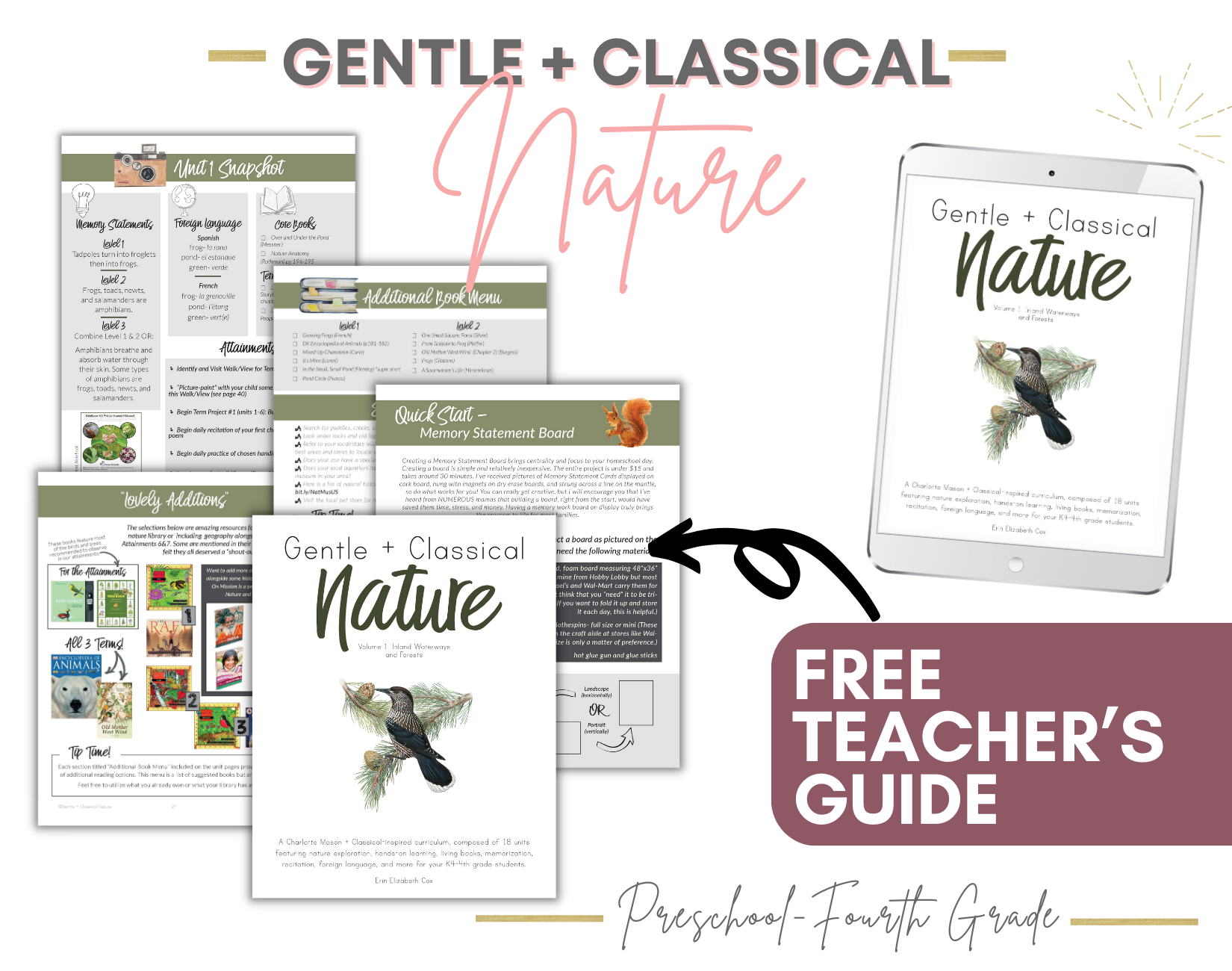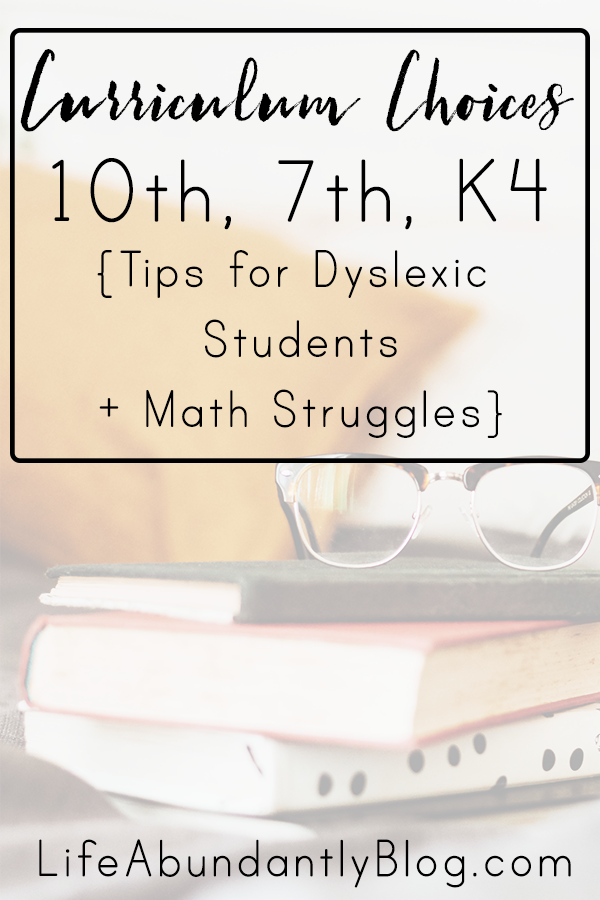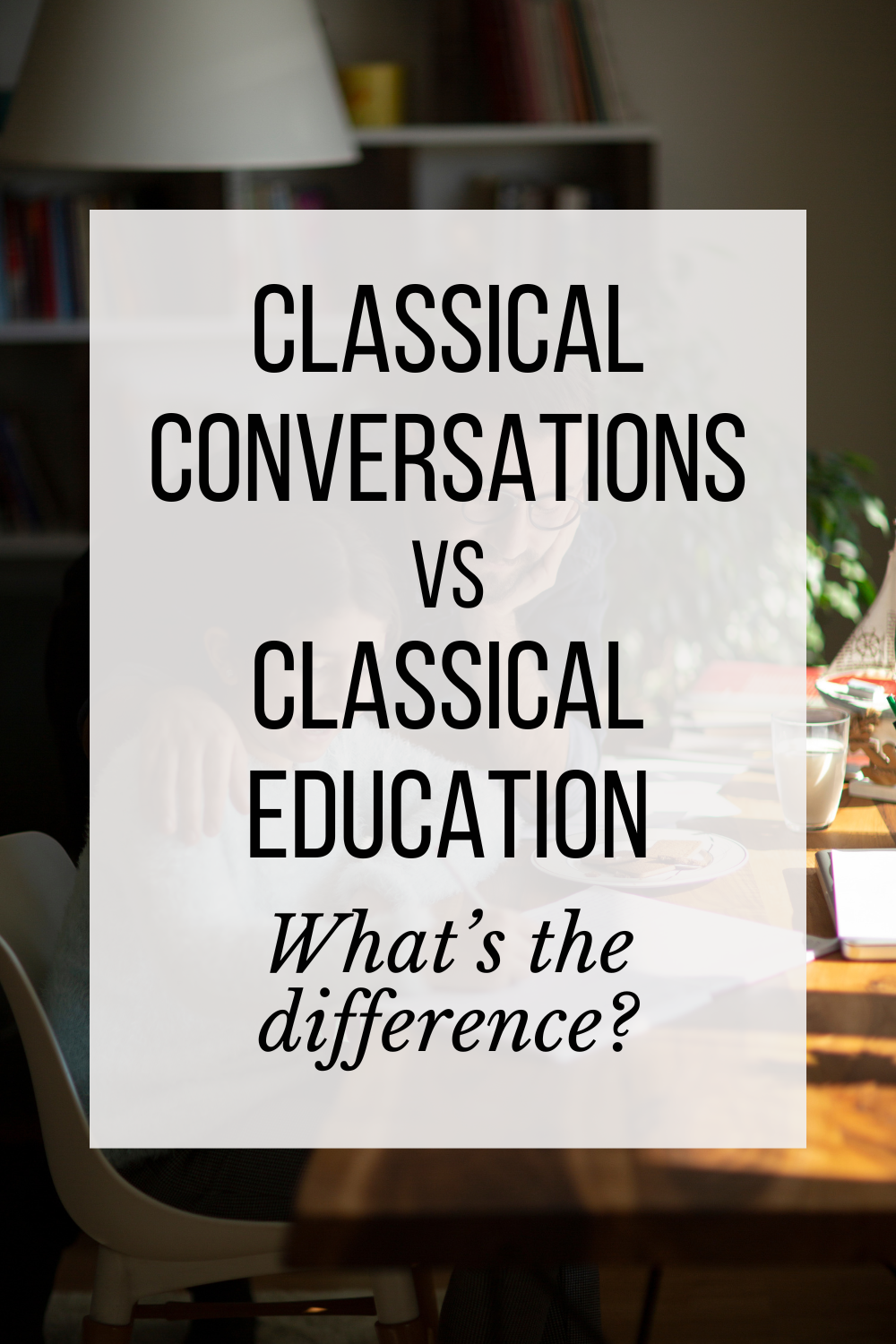Moral Imagination? Poetic Knowledge? What the What?
/This isn’t a light read, but it’s an important one- one that is foundational to stepping into utilizing The Gentle + Classical Preschool Level 2. At the bottom of this post, I have given you a few excellent podcasts, blogs, and book suggestions!
I’ve been on an educational and spiritual adventure that God is gently (forcibly) leading me through as I quake in overwhelm at the idea of penning GC Preschool 2. I’ve never felt such incredible weight and responsibility, but I’ve also never felt God so tangibly pulling me in a particular direction. I recently updated the overview page of The Gentle + Classical Preschool 2 (HERE) and removed the study of history from the framework. I give a brief overview of why on that page and mention words like “moral imagination” and “poetic knowledge.” If you are anything like I was just a few short months ago, you have no idea what those words mean. (I feel you.)
I won’t pretend to be an expert. I’ve read books, blog posts, and listened to podcasts and conference talks by people who are immeasurably more intelligent than I am. All I can do is sit at their feet, continue in the conversation as best I can, and pray for God (fervently) to give me understanding and guidance. Below, I will detail my understanding of WHY the moral imagination is SO important in the early years, before we begin formal history instruction. To find out exactly WHAT the moral imagination is, I have shared several links at the bottom of this post.
As homeschool moms, I believe that one of the most important tools that we can give our children is a deep, unshakable understanding of what is GOOD and what is EVIL. In the earliest years, I propose that nothing is more important in the education of our children than instilling virtues that reflect Godliness and helping them rightly order their affections for what is good, true, and beautiful (and helping them to desire to reject what is NOT). As we move forward exploring these topics, it’s my intention to help you understand why I feel this way and what it has led me to. Word of caution: I am not so bold to believe that I have everything figured out or that my “arguments” are not without error. But I do want to share what I am learning and gleaning as I go.
In our modern society, we must work all the more intentionally to honor our children's innate status as image-bearers who yearn for truth, Godliness, and comfort in an often scary, bizarre world. Our job is not just to protect them from the "bad" (as that is a full time job) but equip them with hearts that have right knowing about virtues and morality.
The ages before 6 are the most valuable, tender, oft-overlooked ages of moral development. We often believe our true focus during this season should be on an "early start" with reading and math, and there is definitely time in the day for very fun, relaxed approaches to these. But let us not elevate the scientific knowledge (facts/skills) above the sacred poetic knowledge of who they are as image-bearers of God.
You have probably watched your child’s development flow from complete selfishness to a firm desire for “fairness” between the ages of 4-6 years. You may notice your child beginning to bring up notions of justice and right punishment. During this developmental expedition, our children often experiment with right/wrong actions in order to find consistency (and affirmation) in what they understand to be acceptable and not. Some children challenge these ideas and need more affirmation than others in our home ;)! The moral imagination comes into play by allowing our children to PARTICIPATE IN THE DECISION-MAKING of characters who go on misadventures or face evil themselves without physically having to make those same poor decisions or face real evils.
Our little ones are often big thinkers with big fears and big questions. Their experience of walking alongside Pinocchio as he develops his own moral conscience helps them to understand that we can all fail and be redeemed. Their experience of the complete evil depravity of Cinderella’s stepsisters helps them see how horrible the downfall truly is for those who worship self and selfish ambition. Their experience of Snow White gives them a comforting picture of a wise, loving father (in the REAL dwarves) and cautions against disobedience, with a redemptive ending of LIFE (a picture of the Gospel).
Through stories that present a VERY CLEAR distinction of right and wrong, good versus evil, our children practice making decisions, facing “dragons,” and overcoming loss alongside the characters they are journeying with. I love this quote from Chesterton:
"Fairy tales, then, are not responsible for producing in children fear, or any of the shapes of fear; fairy tales do not give the child the idea of the evil or the ugly; that is in the child already, because it is in the world already. Fairy tales do not give the child his first idea of bogey. What fairy tales give the child is his first clear idea of the possible defeat of bogey. The baby has known the dragon intimately ever since he had an imagination. What the fairy tale provides for him is a St. George to kill the dragon."
Stories that foster the moral imagination not only have CLEAR boundaries between good and evil, they also often picture the evil with such grotesque behaviors that we want to shield our children from them. I completely understand this impulse! While we still have to use discretion based upon our child’s sensitivity to violence and gore, I would propose that if we shield them TOO HEAVILY from the depravity of evil sin and the ramifications of such by softening the lengths the evil characters will go to and the depths of their eventual downfall, we are also softening their perception of how much God truly hates evil.
It is an unfortunate side effect of our current culture than the concept of justice and punishment have been labeled as barbaric, wrong, and unfair. If we know God, we are to know that he is both FULLY just and FULLY merciful. He is the perfect balance of those things.
From my own personal experience with a skewed understanding of justice before I came to Christ, I can testify that many children grow up with a misunderstanding of RIGHT justice against that which is evil as evil behaviors are often justified with sympathetic stories in the books, movies, and TV shows that our children consume- that which IS TRUE is intermingled with that which is not. (Examples of this type of story would be Twilight, Maleficent, or modern retellings of several Fair Tales.) Is there a developmentally appropriate time to flesh out grace, mercy, forgiveness, and the balance of justice? Absolutely! Many of the tools that we use to develop the moral imagination also build upon those concepts as well. However, the moral imagination itself is integral in both discerning good and evil as well as when grace, mercy, and repentance are needed.
If we give a reason behind every villain’s evil behavior and allow them to escape scot-free, how can our children begin to develop the skills of discernment in their own lives? It is written in our hearts as image-bearers that SIN is horrible and deserves JUST punishment. It is INTEGRAL to the understanding of the Gospel of Jesus Christ. If we teach our children (subtly, through various media) that if circumstances are bad enough, any action is excusable, how could they ever need a Savior? And if evil and depravity do NOT deserve JUST punishment, then why would Christ have ever died?
That might sound like a deep and lengthy extrapolation of how important the moral imagination and poetic knowledge are, but as I’ve learned, prayed, and looked out into our current culture, I’ve come face to face with the realization that it’s not. Stories that take what is openly evil and soften it, excuse it, or TWIST it so that the traditionally evil archetypes are now acceptable and good have a far-reaching and scary impact upon the fundamental moral development and worldview of our children.
Twisted stories (those where what was once considered evil- like vampires and dragons- are represented as good) pervert what is good, true, and beautiful. They incorporate lust, intrigue, and skewed versions of "goodness," intermingling what is good with what is evil, and again blurring what were once clear lines, creating a "my truth" mentality. In this dynamic, EVERYTHING becomes acceptable as long as (and especially when) there's a “good reason“ for it.
I believe that a wide, deep, solid foundation in virtue that is fed and exercised by excellent literature becomes our children’s "armor" that we must begin to shroud them in from the earliest ages possible. As modern mamas, it's nearly impossible to protect our children from a culture that is beginning to prize what is most perverse... Our greatest guard, rather than extreme avoidance, is to equip their hearts and souls with a true moral compass that passionately pursues Truth and readily identifies even the most sinister lies.
I propose that developing identities that are fully rooted in our status as image-bearers is fundamental to the redemption of our culture. In Christ, we have ABOUNDING GRACE, but the first step in helping our children understand a NEED for grace is their identification of what IS sinful so that they may ultimately identify the sin that lives in their own hearts and yearn for a Savior. We cannot preach the Gospel of GRACE if we have not taught what sin and evil look like in the first place. The story of GRACE without the identification of why we NEED IT leaves us with unrepentant hearts and a search for identity in the world rather than in Christ.
We are raising an entirely new generation in a completely different world. We cannot sit idly by and say, "I did these things, watched these things, etc and I turned out OK." For most of us, we've witnessed the rapid moral decline in just a short generation. Our children are exposed to corrupt worldviews and lies as even extremely young children that we never encountered. For many of us, we began encountering the ideology of "my truth" and “gray areas” well into our teen and young adult years, after our hearts and minds had already been fed the substances upon which the moral imagination thrives. Our children do not have that luxury unless we very intentionally choose it for them.
There is much to learn in a lifetime. An excellent education is no small order. But I propose that in the earliest days of our children's lives, that our utmost duty, is to instill in them a powerful, irrevocable right knowing of good and evil. I propose that their moral core and virtues be elevated above all other education so that their foundation is secure. I propose that ALL that we bring before them reflect the real, one, singular TRUTH in Christ--the story of the Gospel and our need for a Savior.
History has a time and place--we cannot raise good citizens of the future without their understanding where our country and world has come from. But before we ask them to read and understand the the adventures of Columbus or the wars of Ancient Greece, we must first instill a right knowing of virtue and morality, and what better way to do that than through timeless, living, whole, healing stories that draw them in and help them develop their muscles of discernment?
The redemption, resurrection, grace, restoration, and repentance reflected through fairy tales and other excellent classic literature endows our children with a full picture of the Gospel again and again and again. It helps them face their worst fears, exercise their sense of justice, bravery, and discernment, and empowers them to face the future with a foundation in Christ.
So that’s what I’ve ventured to do. Through The Gentle + Classical Preschool 2, as we still practice important memory work of scripture, math, catechism, songs, science, and more, we will roam the world on the coat tails of missionaries, exploring various cultures and countries, as well as wondering at ancient tales that have instructed the minds of men and women for centuries, all through the lense of Gospel Truth.
MUST CHECK OUT:
Podcasts: Episode 41 and 60 on Your Morning Basket with Pam Barnhill and Angelina Stanford HERE or wherever you listen to podcasts.
Blog: This BLOG SERIES by Sarah MacKenzie on AmongstLovelyThings.com
Audio: This isn’t free, but WELL WORTH your $3 to listen to Andew Pudewa discuss the Moral Imagation.
Books:

